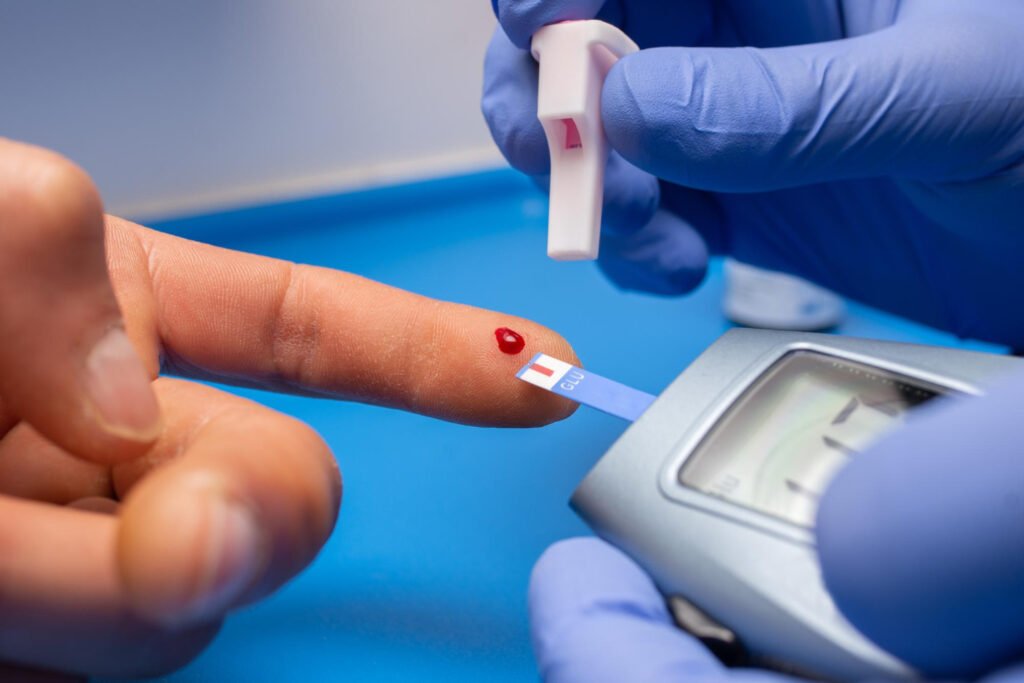Managing blood sugar is essential for overall health. Blood sugar, or glucose, is the main source of energy for your body, but when it becomes too high or too low, it can lead to fatigue, mood swings, and serious health problems over time. By adopting simple daily habits, you can stabilize your glucose levels and support long-term wellness.
In this article, you’ll discover practical strategies to manage blood sugar, the benefits of maintaining stable glucose, helpful nutrition and lifestyle tips, and natural ways to keep your levels balanced.
Why Blood Sugar Management Is Important

Blood sugar refers to the amount of glucose in your bloodstream. Glucose comes primarily from the foods you eat, especially carbohydrates. Insulin, a hormone produced by the pancreas, helps your body use glucose for energy or store it for later use.
When blood sugar is consistently high (hyperglycemia) or low (hypoglycemia), it can affect your energy, concentration, and overall health. Over time, unstable blood sugar can increase the risk of type 2 diabetes, heart disease, kidney issues, and nerve damage.
Signs of Unstable Blood Sugar
It’s important to recognize when your glucose levels are fluctuating:
-
Frequent thirst and urination
-
Sudden fatigue or low energy
-
Mood swings or irritability
-
Blurred vision or dizziness
-
Unexpected weight changes
Recognizing these signs early helps you take preventive steps before serious health issues occur.
Nutrition Tips to Support Blood Sugar
1. Eat Low Glycemic Index Foods
Low-GI foods release glucose slowly, helping prevent spikes. Examples include:
-
Whole grains: oats, quinoa, barley
-
Legumes: beans, lentils, chickpeas
-
Non-starchy vegetables: spinach, broccoli, kale
2. Include Lean Protein
Protein slows digestion and supports stable blood sugar:
-
Eggs
-
Fish and poultry
-
Tofu and legumes
3. Add Healthy Fats
Healthy fats improve insulin sensitivity:
-
Olive oil
-
Nuts and seeds
-
Avocados
4. Limit Sugar and Refined Carbs
Sugary drinks, candy, pastries, and white bread can spike blood sugar levels. Minimizing these foods helps maintain stability.
5. Eat Small, Balanced Meals
Frequent smaller meals with protein, fiber, and healthy fats prevent large fluctuations in glucose.
Lifestyle Habits to Keep Blood Sugar Stable
1. Exercise Regularly
Physical activity helps regulate glucose naturally:
-
Brisk walking for 30 minutes daily
-
Strength training 2–3 times per week
-
Yoga and stretching exercises
2. Manage Stress
High stress increases cortisol, which can raise blood sugar. Reduce stress through:
-
Meditation and deep breathing
-
Journaling or mindful activities
-
Adequate sleep
3. Stay Hydrated
Drinking water supports kidney function and helps control blood sugar levels.
4. Get Quality Sleep
Poor sleep reduces insulin sensitivity. Aim for 7–9 hours per night for better glucose control.
Natural Ways to Support Blood Sugar
-
Fiber-Rich Foods: Soluble fiber slows glucose absorption (oats, chia seeds, vegetables).
-
Cinnamon: Helps improve insulin sensitivity and glucose metabolism.
-
Apple Cider Vinegar: May reduce spikes by slowing carbohydrate absorption.
-
Green Leafy Vegetables: Magnesium in greens supports insulin function.
Tips for Monitoring Blood Sugar
Monitoring your glucose helps track patterns and improve control:
-
Use a glucometer or continuous glucose monitor if recommended
-
Keep a food and activity diary
-
Consult a healthcare professional for personalized targets
Common Myths About Blood Sugar
-
Only sugar affects blood glucose – False, refined carbs and starchy foods can also spike blood sugar.
-
Skipping meals helps lower blood sugar – False, it can cause low glucose and overeating later.
-
Natural remedies replace medical care – False, lifestyle support complements but does not replace medical guidance.
Benefits of Maintaining Healthy Blood Sugar
-
More consistent energy levels
-
Reduced risk of diabetes and heart disease
-
Better mood and focus
-
Stronger immunity
-
Easier weight management
By combining diet, exercise, stress management, and natural strategies, you can achieve stable blood sugar and long-term health.
Frequently Asked Questions (FAQs)
1. How often should I check my blood sugar? Check regularly as advised by your healthcare provider to monitor trends and adjust habits.
2. Can exercise lower blood sugar quickly? Yes, physical activity uses glucose for energy, helping reduce elevated levels.
3. Are natural remedies effective? They support blood sugar management but should complement diet, exercise, and medical advice.
4. How long does it take to stabilize blood sugar? With consistent habits, you may notice improvements in a few weeks.
5. Can I prevent diabetes naturally? Healthy lifestyle, balanced diet, regular exercise, and monitoring glucose significantly reduce the risk.
Conclusion
Maintaining healthy blood sugar is achievable with simple, consistent habits. Focus on balanced meals, physical activity, stress management, hydration, and sleep. Natural remedies like cinnamon, fiber-rich foods, and leafy greens can further support glucose stability. Regular monitoring and mindful lifestyle choices create long-term benefits for energy, mood, and overall health.
“If you are looking for a natural way to improve your health and lifestyle, [GLPro] could be the perfect choice. Start your journey today.”







